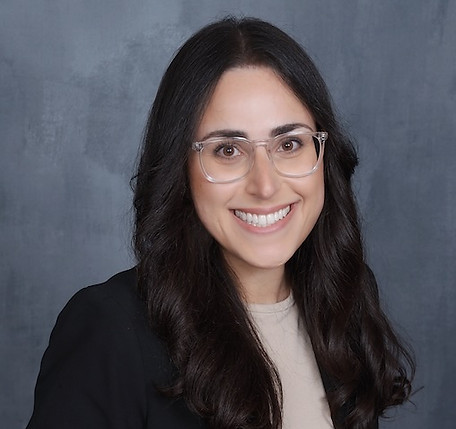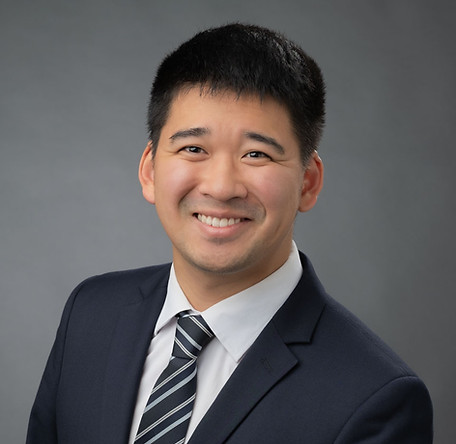
PGY1 Residents
General Track

Amber Acquaye, M.D.
Yale School of Medicine

Kelsey Biddle, M.D.
Harvard Medical School

Lexis Deshazor-Burnett, M.D.
University of Michigan Medical School

Molly Doernberg, M.D., M.P.H.
Yale School of Medicine

Brady Greene, M.D., M.S.
Cleveland Clinic Lerner College of Medicine

Brian Lusby, M.D., M.S.
University of Washington School of Medicine

Noreen Mansuri, M.D., M.A.
University of California Davis School of Medicine

Kadi Nguyen, M.D.
University of Vermont College of Medicine

Arielle Silbersweig, M.D.
Emory University School of Medicine

Jowan Watson, M.D., M.S.
Harvard Medical School

Dennis Zhou, M.D., Ph.D.
Vanderbilt University School of Medicine
Child Track

Lauren Edwards, M.D., M.S.
Howard University College of Medicine

Vivian Kim, M.D.
Albert Einstein College of Medicine
Research Track

Ya-Wen Chen, M.D., J.D., M.P.H.
Chung-Shan Medical and Dental College

Matthew Kelly, M.D., Ph.D., M.P.H.
Johns Hopkins School of Medicine

Zackari Murphy, M.D., Ph.D.
Morehouse School of Medicine
PGY2 Residents
General Track

Andrea Camarena, M.D.
Meharry Medical College

Angelique Ealy, M.D.
University of Maryland School of Medicine

King Fok, M.D.
Harvard Medical School

Michelle Guo, M.D.
Perelman School of Medicine at the University of Pennsylvania

River Lerner, M.D.
The Warren Alpert Medical School of Brown University

Alex Rains, M.D.
University of Chicago Division of the Biological Sciences The Pritzker School of Medicine

Sophia Toé, M.D.
Case Western Reserve University School of Medicine

Julia Versel, M.D., M.Sc.
Loyola University Chicago Stritch School of Medicine
Child Track

Madeline DiGiovanni, M.D.
Yale School of Medicine

Grace Johnson, M.D.
Mayo Clinic Alix School of Medicine
Research Track

Yishin Chang, M.D., Ph.D.
University of Illinois, College of Medicine

Adam Stark, M.D.
Vanderbilt University School of Medicine

Ben Tsuda, M.D., Ph.D.
University of California, San Diego School of Medicine

Philip Wang, M.D.
Cleveland Clinic Lerner College of Medicine
PGY3 Residents
General Track

William French, M.D.
University of Washington School of Medicine

Julia Golden, M.D.
University of Connecticut School of Medicine

David Brendan Johnson, M.D.
University of Minnesota Medical School

Jennifer Jolivert, M.D.
Perelman School of Medicine at the University of Pennsylvania

Yu Kyung Lee, M.D.
Yale School of Medicine

Sand Mastrangelo, M.D.
Geisel School of Medicine at Dartmouth

Jin Pyon, M.D.
Weill Cornell Medicine

Olivia Rivera, M.D., M.P.H., M.L.
Perelman School of Medicine at the University of Pennsylvania

Monique Sager, M.D., M.B.A.
Perelman School of Medicine at the University of Pennsylvania

Joseph Wu, M.D., Ph.D.
The Warren Alpert Medical School of Brown University
Child Track

.
Sahana Cordaro, M.D.
Virginia Tech Carilion School of Medicine

Mary Sun, M.D., M.S.
Icahn School of Medicine at Mount Sinai
Research Track

Anjali Chandra, M.D.
Emory School of Medicine

Abigail Greene, M.D., Ph.D.
Yale School of Medicine

Naihua Natalie Gong, M.D., Ph.D.
Perelman School of Medicine at the University of Pennsylvania

Kwadwo Owusu-Boaitey, M.D., Ph.D.
Harvard Medical School

Avin Veerakumar, M.D., Ph.D.
Stanford University School of Medicine
PGY4 Residents
General Track

Stephanie Fagbemi, M.D.
Lewis Katz School of Medicine at Temple University

Josie François, M.D., M.P.H.
Harvard Medical School

Jack Huang, M.D., M.B.A.
Perelman School of Medicine at the University of Pennsylvania

Todd Jones, M.D.
Columbia University Vagelos College of Physicians and Surgeons

Rachel Kery, M.D., Ph.D.
Renaissance School of Medicine at Stony Brook University

Sarah Kovan, M.D., M.Sc.
Geisel School of Medicine at Dartmouth

Deborah Park, M.D., M.S.
Cleveland Clinic Lerner College of Medicine of Case Western Reserve University

Mary Shen, M.D., M.Sc.
University of North Carolina at Chapel Hill School of Medicine

Evelina Sterina, M.D., M.S.
Emory University School of Medicine
Child Track

Jeremy Wortzel, M.D., M.P.H., M.Phil
Perelman School of Medicine at the University of Pennsylvania
Research Track

Leela Chakravarti Dilley, M.D., Ph.D.
Perelman School of Medicine at the University of Pennsylvania

